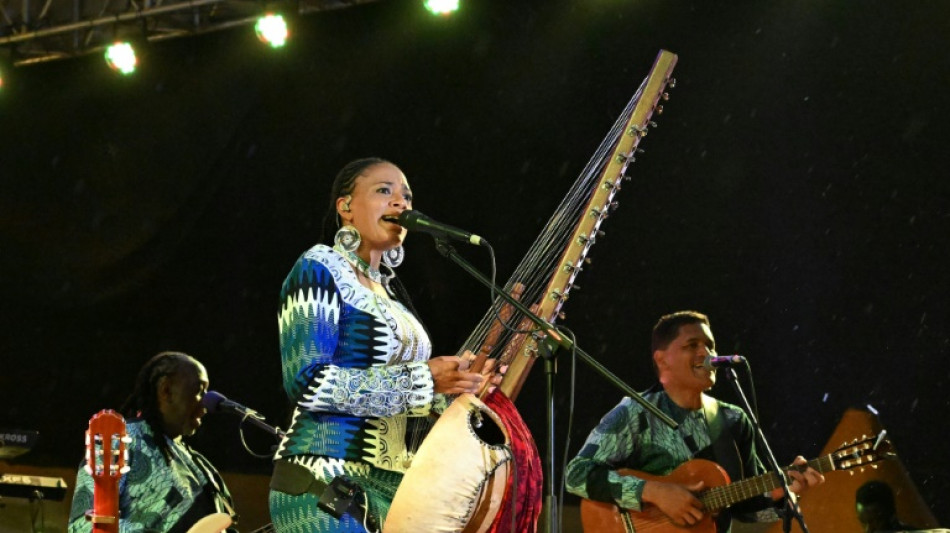
Breaking men-only musical lore, Jobarteh puts African kora on wider stage

For Sona Jobarteh, Africa's first woman to play the sacred kora professionally, breaking with tradition has not been easy.
At Abidjan's FEMUA urban music festival, which closes in the Ivory Coast city on Sunday, Jobarteh went on stage with percussionists, guitarists and a balafon player.
In her hands, the 21 metallic strings of the kora -- an instrument shaped like a lute and plucked like a harp -- to create captivating melodies over repeated rhythms.
"The process of getting to learn the kora was different for me than it was for male members of the family," she told AFP.
"The kora is the social instrument that you learn in a community... but being different to everybody else it became difficult for me to be someone that is accepted," she said.
"It became a very private journey for me, which is very different and very unusual to the normal way of learning kora in a family context."
Jobarteh comes from a family of Gambian griots, widely respected musical storytellers who pass on West African traditions.
Her grandfather Amadu Bansang Jobarteh was a kora master. Her Malian cousin Toumani Diabate was another kora star.
"I don't know what it was but I do know that I was always attracted to it from a young age and I started playing from a young age," Jobarteh said.
"Later, it was really when I was around 17 that I started to really take it as 'this is something that I want to be my profession' as opposed to just something that I can do.
"So that's when I really started to study very hard with my dad, as with an aim and a goal of becoming as good as I could on the instrument."
Her perseverance paid off with international success, working with famous artists and a hit record with "Gambia".
"It's difficult to tell the level of impact that I've had on the tradition in terms of other women being able to come through," she continued.
"Even for me, being a female... it's still unusual to see, and it's incredibly inspiring for me.
"I feel that something very special is happening when I'm witnessing these classes going on" at her music academy in The Gambia. "Wow, this is the change that we are starting to see."
- Demystify -
Jobarteh "demystified an instrument that had been reserved for men only," said Assetou Baguian, a student at Abidjan's national arts, music and culture institute INSAAC.
"Today she has become a model for all of us," said Baguian, who started learning the kora in 2022 and is known as Astar.
"It's become a great passion. I used to sing but that kora has taken over now."
Astar said playing the kora "soothes my soul" and she dreams of playing at major international venues.
"I didn't face any negative criticism... taking up the kora... I was following in the footsteps of other women," she noted.
But for Jobarteh the problem is "not just about being a woman, it's also about the challenges of coming from a griots family or not."
Without the griot background the musician faces more hurdles.
Despite the obstacles she has faced, Jobarteh sees her pioneer status as "almost incidental".
She has toured the world with her kora in recent years and if she has broken with tradition, it has been to better promote the instrument.
L.Barone--PV
